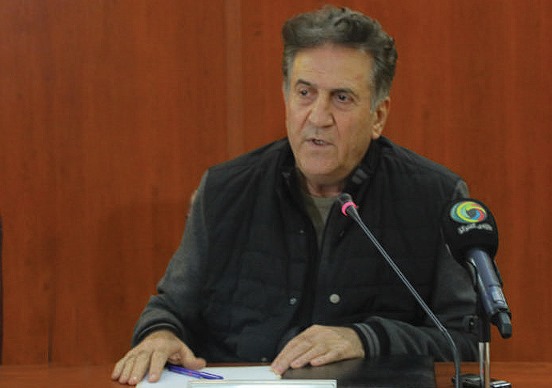By Rojhat Amadi
Rojhat Amadi is a prominent activist and politician in Northern Kurdistan. He was a member of the leadership of the Kurdistan Democratic Party (KDP) in Northern Kurdistan. The Kurdish issue in Northern Kurdistan should be resolved peacefully, and the Turkish constitution should be amended to guarantee the rights of the Kurdish people in the north.
On this important topic, “Peaceful Resolution of the Kurdish Issue in Turkey,” a frank discussion has been organized to talk about this hot issue in a very serious way.
In my view, there is no other way to resolve the Kurdish issue in Turkey except through a peaceful solution. More than 40 years ago, it became clear to everyone that the Kurdish issue could not be resolved through armed struggle. The military operations of the Turkish army cannot resolve it, so we have welcomed the opportunity to resume the peace process whenever it comes.
For several days, especially after Abdullah Ocalan sent a message from Imrali, saying that he could “end the war in a short time and find a peaceful solution,” there has been a lot of talk about the resumption of the peaceful solution to the Kurdish problem in Turkey. After the visit of Devlet Bahçeli to the Dam Party, discussions about resuming the peace process have intensified. I wrote an article 10 days ago in which I openly emphasized that “in the current political situation in Turkey, I do not believe that a genuine peace process can resume.” In recent days, it has become clear that there is no “real” peace process and that it is only talk or an attempt to get Turkey out of a difficult situation and save itself.
Of course, everyone knows that the Kurdish goal in the north is to resolve the issue peacefully and end the war. The Kurdish people in the north have decided that the only solution is peace. This is the opinion of the entire Kurdish people in the north, including those who are radical and have chosen armed struggle. At the level of all parts of Kurdistan — “south, west, east” — there is a warm welcome for the peaceful solution of the Kurdish problem.
There are two main problems in the Middle East. The first is the problem of the Palestinian people, and the second is the Kurdish problem. The international community has made many efforts to resolve the Palestinian issue, including the establishment of a Palestinian state. However, the authorities of the four states—Turkey, Iraq, Iran, and Syria—have not been able to resolve the Kurdish issue peacefully. Meanwhile, the international community has neglected the peaceful solution to the Kurdish issue in the Middle East. If we compare the demands of the Kurdish people in all four parts of Kurdistan with the demands of the Palestinian people, we see that the Kurdish demand is “brotherly coexistence within a democratic and liberal system,” while the demand of the Palestinian people is something else.
Unfortunately, there is no real readiness for a peaceful solution to the Kurdish problem in the north in the political environment of the Turkish government. This is the second time in 12 years that attempts have been made to resolve the Kurdish problem in the north. However, both times, the process was influenced by changes in the eastern region and Turkey’s fear that those changes would impact Turkey. While there have been sincere efforts by some parties and leaders to achieve peace.
For example, in Southern Kurdistan, President Massoud Barzani helped significantly to make the process successful. Many PKK leaders from Qandil Mount even came to Erbil. When President Barzani visited Turkey, he saw the changes in the Mideast as an opportunity to make the peace process succeed under the pressure of these changes. However, other external efforts, particularly the intervention of Turkey’s neighboring states, hindered the successful conclusion of the peace process.
In order to prevent these changes from spreading inside Turkey, the Turkish government has taken steps to resume a new peaceful solution to the Kurdish problem in the north. However, Turkey’s intention for a genuine peace process has focused solely on negotiating with Abdullah Ocalan. Meanwhile, Kurdish politicians such as Selahattin Demirtaş, who is a leader of a party with representatives in the Turkish parliament, have been excluded from the peace talks.
Finally, I would like to emphasize that if the Turkish government aims to take steps toward a genuine peace process, it is important to amend its constitution in such a way that Kurdish rights are included in it. While not all Kurdish problems in the north will be solved, at least more than 50% of the total Kurdish problems in the north can be addressed.
* a politician from Northern Kurdistan:

